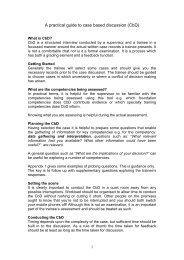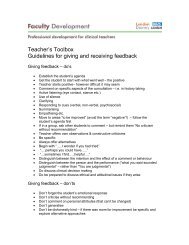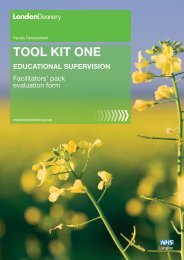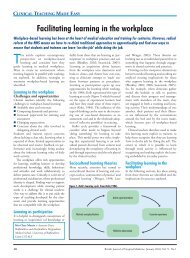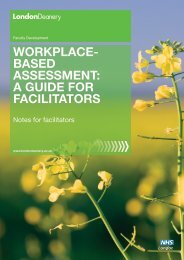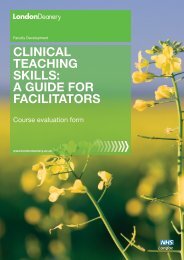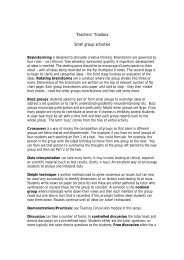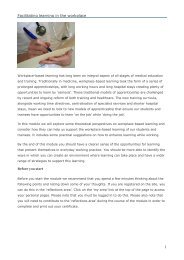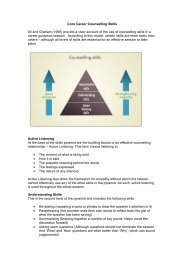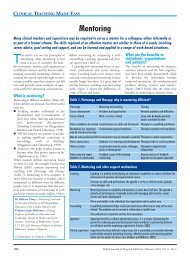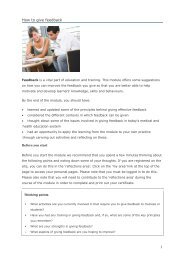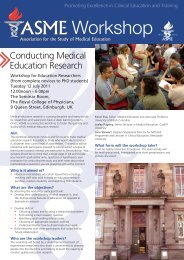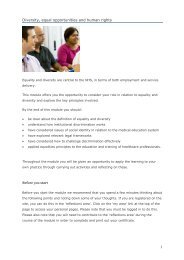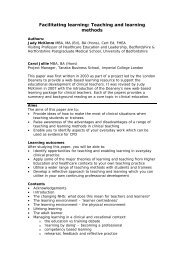Curriculum development module - Faculty Development - London ...
Curriculum development module - Faculty Development - London ...
Curriculum development module - Faculty Development - London ...
You also want an ePaper? Increase the reach of your titles
YUMPU automatically turns print PDFs into web optimized ePapers that Google loves.
Assessments such as OSCEs (Objective structured clinical examinations) are<br />
widely used to measure competence in clinical skills. See the Assessment paper<br />
for a detailed explanation of competency testing.<br />
Principles of competency based approach:<br />
• Systematic, based on learning outcomes/competencies deemed<br />
essential for health workers once working<br />
• Provides trainees with high quality learning activities designed to<br />
help them master each task, periodic feedback designed to allow<br />
trainees to correct performance as they go along<br />
• Requires trainees to perform tasks to high level of competency in<br />
work like setting<br />
• Individual student differences in the mastery of a task are as much<br />
to do with the learning environment as the learners themselves<br />
In planning a competency based programme or session (eg. clinical skills teaching<br />
session), five steps need to be taken:<br />
Step 1 carry out a needs analysis of context and of activities which will be<br />
required<br />
Step 2 carry out a task analysis - put major activities into sub tasks or<br />
components, resulting in a list of specific knowledge, skills and attitudes that<br />
distinguish those who perform a task competently from those who do not. This<br />
becomes the instructional content the trainee will learn.<br />
Step 3 deriving the objectives from the competencies required, set criterion for<br />
performance, objectives must be realistic, measurable, achievable and specific.<br />
Step 4 defining teaching and learning strategies<br />
Step 5 determining assessment strategies<br />
In practice we often find that a mix of approaches and methods are most<br />
appropriate and hardly any modern healthcare curricula are purely subject based,<br />
integrated, PBL or competency based but are synthesised. Choices must be made<br />
about the approach in the light of the specific needs and context and then once<br />
the course is designed, it should be adhered to as much as possible.<br />
Learning activity and reflection<br />
Compare your own undergraduate training with a current programme.<br />
How would these be defined according to the different models described above?<br />
What do you think are the advantages and disadvantages of each?<br />
Can you think of how ideas from these models could be used to improve a course<br />
in which you are involved?



